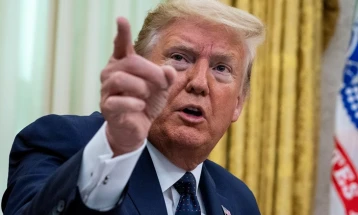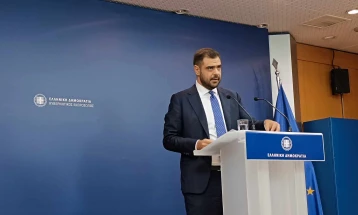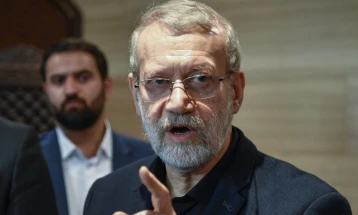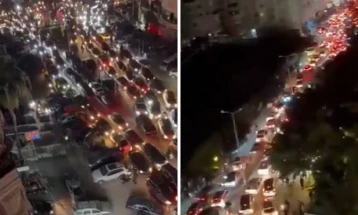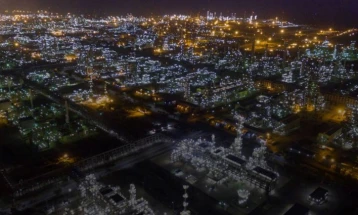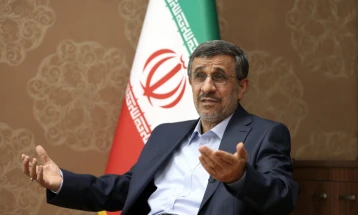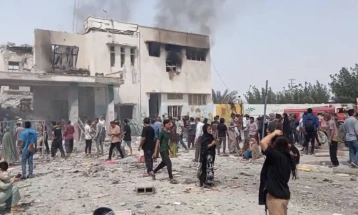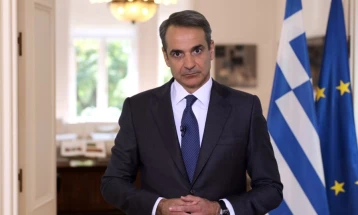Swiss conference on Ukraine reveals various views on peace
- After more than two years of war in Ukraine, representatives of more than 90 states are at a conference in Switzerland looking for ways to achieve peace, but their views vary on how much progress is actually possible.
- Post By Ivan Kolekevski
- 11:35, 16 June, 2024
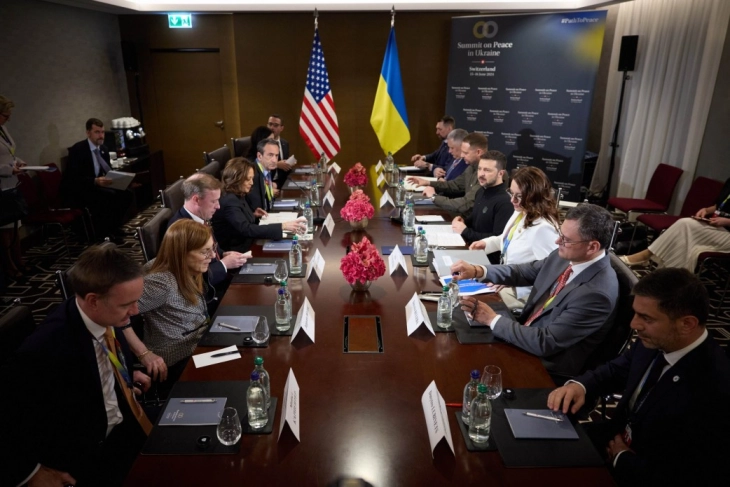
Bürgenstock, 16 June 2024 (dpa/MIA) - After more than two years of war in Ukraine, representatives of more than 90 states are at a conference in Switzerland looking for ways to achieve peace, but their views vary on how much progress is actually possible.
"We have managed to give diplomacy a chance," said Ukrainian President Volodymyr Zelensky on Saturday afternoon before the start of the peace summit initiated by him and the Swiss government on the Bürgenstock, a mountain ridge overlooking Lake Lucerne.
The two-day meeting of 92 states and eight international organizations brought back the idea that joint efforts could stop a war and establish trust and peace.
But Swiss President Viola Amherd dampened expectations.
"Our goals are modest," she said, explaining that the aim of the conference was to inspire a process for a lasting and just peace. The importance of international law as the basis of the international order is central to this, she said. "Russia's attack violates this in the most serious way," Amherd said.
And Austrian Chancellor Karl Nehammer warned against the so-called preaching to the choir effect.
"We are like in a Western echo chamber. We are all in agreement, but that is not enough," said the Austrian head of government on the fringes of the two-day meeting.
"Without parts of Asia, Africa and South America, we will not be able to get the Russian Federation to change its mind," he said.
Countries such as India, Brazil, China and South Africa are particularly important here, he said. The fact that India and Brazil were represented at the meeting - albeit not at ministerial level - was a "first glimmer of hope," Nehammer said.
Talks continue through Sunday
The summit participants, who were welcomed individually by Zelensky and Amherd in the afternoon, want to discuss topics such as nuclear security until Sunday. This includes the Zaporizhzhya nuclear power plant occupied by Russia and the rejection of the use of nuclear weapons.
They will also discuss Ukraine's grain exports across the Black Sea, which are particularly important for the Global South, and prisoner exchanges.
The Swiss hosts had been endeavouring for months to persuade as many countries as possible to take part in the summit. 160 were invited and more than 90 accepted, many of which were represented by heads of state and prime ministers. German Chancellor Olaf Scholz travelled directly from the G7 summit in southern Italy to Switzerland.
US President Joe Biden, on the other hand, opted return to the US for a campaign event in Los Angeles, sending Vice President Kamala Harris to Switzerland.
Russia was not invited and showed no interest in the conference itself. China, Russia's most important ally, cancelled altogether. Brazilian President Luiz Inácio Lula da Silva and Indian Prime Minister Narendra Modi made the long journey to Europe to attend the G7 summit on Friday. However, they did not attend the Swiss conference that immediately followed.
Brazil is now only attending as an observer, while India is only sending a state secretary from the Ministry of Foreign Affairs. South Africa's national security adviser is attending.
Next conference in Saudi Arabia?
The highest-ranking representative from the countries that are still friends with Russia despite its invasion of Ukraine is now Saudi Arabia's foreign minister. Zelensky had travelled to the powerful Gulf state shortly before the summit to prepare for the conference.
There were rumours afterwards that even Saudi Crown Prince Mohammed bin Salman might come to Switzerland. However, this never materialized. Nevertheless, Saudi Arabia is seen as a possible organizer of a follow-up conference, which Russia should also attend if possible.
Germany backs summit with Russia
Scholz favours a summit with Russia but said on Saturday that "we are are still a long way off" from that happening. He compared the summit to a delicate little plant that now needs to be watered. "But we want the garden to blossom and flourish."
He later noted that Russia must be involved in a peace process for Ukraine.
"It is true that peace in Ukraine cannot be achieved without involving Russia," Scholz at the peace conference in Switzerland on Saturday.
At the same time, he called on Russia to withdraw completely from partially occupied Ukraine.
The Swiss organizers of the meeting hope that a follow-up conference will be decided before the end of the year. "As an international community, we can help prepare the ground for direct talks between the warring parties," said Amherd.
Ideas of peace diverge widely
Before the conference, it once again became clear how far apart Russia's and Ukraine's ideas of a peace solution are. Immediately before the summit, Russian President Vladimir Putin demanded that Ukraine completely relinquish the territories of Donetsk, Luhansk, Kherson, Zaporizhzhya and the Black Sea peninsula of Crimea as a condition for an end to the fighting.
The Ukrainian Foreign Ministry rejected this as absurd and manipulative. "Putin is not striving for peace, he wants to divide the world," it said from Kiev. The Russian head of state is once again trying to present himself on the world stage as a peacemaker for the war he himself triggered, but in reality he is up to something completely different, the Ukrainian side asserted.
"Russia is not planning peace, but the continuation of the war, the occupation of Ukraine, the annihilation of the Ukrainian people and further aggression in Europe," the Ukrainian ministry said.
Harris agreed. She rejected Putin's conditions for peace negotiations with Ukraine as absurd.
"We must speak truth. He is not calling for negotiations, he is calling for surrender," the US vice president asserted at the conference on Saturday.
Last peace efforts were two years ago
Serious efforts to find a peace solution between Russia and Ukraine were only made shortly after the invasion in 2022. Prior to the Swiss conference, the New York Times published the draft treaties from back then. On Friday, Putin tried to present them as an agreement ready to be signed.
According to the documents, Ukraine was prepared at the time to renounce NATO membership and remain non-aligned. The issue of the Crimea peninsula annexed by Russia was to be postponed.
However, Moscow tried to undermine the security guarantees Kiev hoped to receive from other countries such as the United States. Several historians have already come to the conclusion in recent months that both sides were a long way from reaching an agreement in 2022, the newspaper reported.
Photo: dpa
